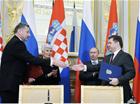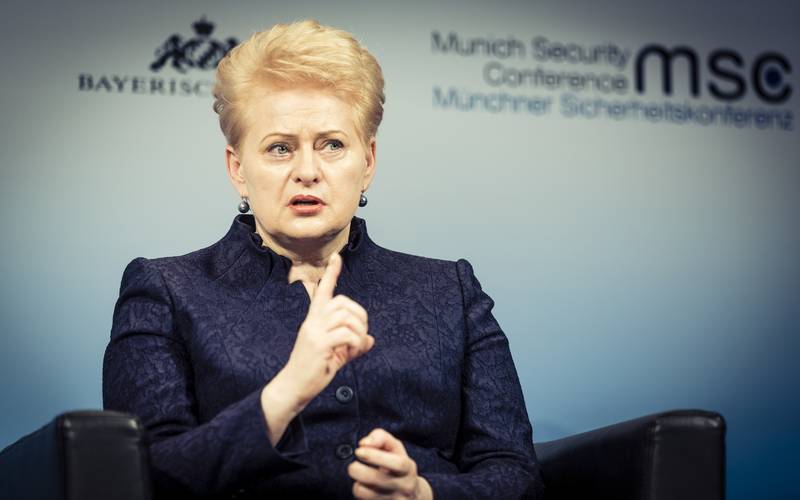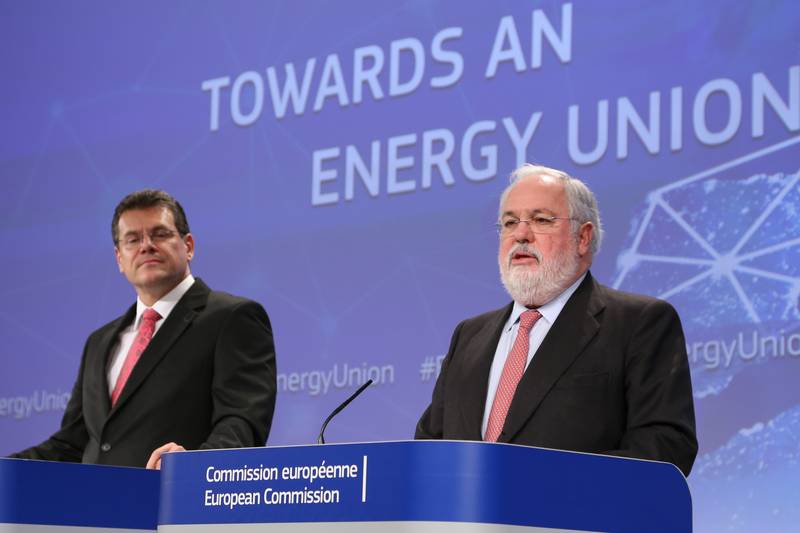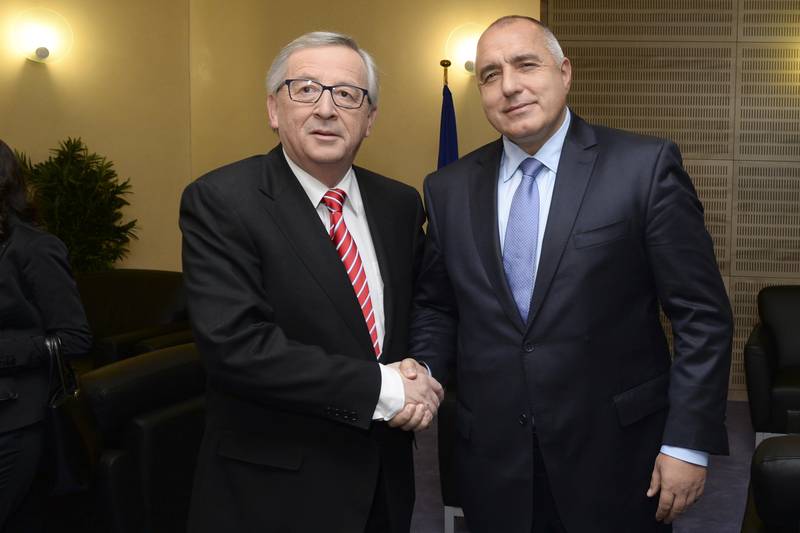Will Croatia Elope with Gazprom for South Stream?
Adelina Marini, August 15, 2012
 "Croatia is under huge pressure by Russian company Gazprom and the Kremlin to sign a new bilateral agreement to regulate relations and rights related to the construction of the South Stream gas pipeline! And that before Croatia joins the EU". This is how the leading article of the Sunday edition of the Jutarnji List daily in Croatia starts on August 12, quoting governmental documents in which the current Croatian position on the construction of the South Stream pipeline is examined in detail. According to the newspaper, the reason for the pressure is the uncertainty that Hungary will not sign changes in the bilateral treaty with Gazprom because of the EU.
"Croatia is under huge pressure by Russian company Gazprom and the Kremlin to sign a new bilateral agreement to regulate relations and rights related to the construction of the South Stream gas pipeline! And that before Croatia joins the EU". This is how the leading article of the Sunday edition of the Jutarnji List daily in Croatia starts on August 12, quoting governmental documents in which the current Croatian position on the construction of the South Stream pipeline is examined in detail. According to the newspaper, the reason for the pressure is the uncertainty that Hungary will not sign changes in the bilateral treaty with Gazprom because of the EU.
At the moment work is ongoing on the route Russia-Bulgaria-Serbia-Hungary- Austria but Gazprom is working on two alternative options, too, which are: Russia-Bulgaria-Serbia-Croatia-Slovenia-Austria and Russia-Bulgaria-Serbia-Croatia-Italy. Croatia is taken into consideration by Moscow as an alternative as early as 2010 when Jadranka Kosor's government concluded an agreement [in Croatian language] with the Russian Federation for cooperation in the construction of a gas pipeline. In the agreement the name of South Stream is not mentioned explicitly but reading the agreement can hardly leave any doubts that this is the project. In the treaty it is stipulated that the two sides support the construction of a new gas pipeline system for transit and delivery of natural gas in European countries. Where the terms are explained it is written that "under a gas pipeline system it should be understood a new gas pipeline system from the Russian Federation via the Black Sea and via the territories of third countries for transit and delivery of natural gas in European countries".
Austria but Gazprom is working on two alternative options, too, which are: Russia-Bulgaria-Serbia-Croatia-Slovenia-Austria and Russia-Bulgaria-Serbia-Croatia-Italy. Croatia is taken into consideration by Moscow as an alternative as early as 2010 when Jadranka Kosor's government concluded an agreement [in Croatian language] with the Russian Federation for cooperation in the construction of a gas pipeline. In the agreement the name of South Stream is not mentioned explicitly but reading the agreement can hardly leave any doubts that this is the project. In the treaty it is stipulated that the two sides support the construction of a new gas pipeline system for transit and delivery of natural gas in European countries. Where the terms are explained it is written that "under a gas pipeline system it should be understood a new gas pipeline system from the Russian Federation via the Black Sea and via the territories of third countries for transit and delivery of natural gas in European countries".
When signing an agreement in 2010, Croatia and Russia agree by the 30th of December 2010 feasibility studies to be made and in 24 months after the studies are prepared a decision to be taken on the construction of the gas pipeline.
Croatia and the EU
Jutarnji List claims that the European Commission is against and considers all bilateral treaties with Gazprom and Russia as being in breach of the European legislation. According to the newspaper's sources, Croatia has to be extremely cautious because it is under EU monitoring before membership and has to present all its bilateral agreements to the EU. Moreover, the daily claims, letting the Russians in could hamper the planned for the 1st of July 2013 accession of Croatia into the Union. Nothing like this can be expected from the Commission, though, because it considers the construction of infrastructural projects a national matter. As a member of the European Energy Community, however, Croatia is obliged to respect the rules of the second and then as a EU member state - of the third energy package - just like all the other member states.
One of the key elements of the third energy package, which came into force in 2009, is the idea for unbundling (separation) of production from distribution. An element which Russia considers aimed specifically at itself which is why it turns the third energy package into one of the main subjects on the agendas of the EU-Russia summits. Unbundling production from the energy grid and deliveries aims to ensure competitiveness, increasing deliveries security, diversification and transparency of prices. This is why the main idea behind the third energy package is the supplier not to be the same as the producer nor the grid to be his or her ownership.
 In the agreement, signed between Moscow and Zagreb in 2010, it is stipulated that the two countries agree to create a joint company where the shares will be distributed equally - 50/50. It is also stipulated that the joint company will be the owner as of the pipeline so of all the estates related to the company's activities. It is explicitly stipulated that the company's property "cannot be subjected to expropriation, nationalisation or any other measures that could lead to expropriation or nationalisation".
In the agreement, signed between Moscow and Zagreb in 2010, it is stipulated that the two countries agree to create a joint company where the shares will be distributed equally - 50/50. It is also stipulated that the joint company will be the owner as of the pipeline so of all the estates related to the company's activities. It is explicitly stipulated that the company's property "cannot be subjected to expropriation, nationalisation or any other measures that could lead to expropriation or nationalisation".
The Croatian government announced officially that Croatia would not conclude any agreements that would be in violation of the European legislation, without answering the question whether this means that a treaty with Russia will be concluded on South Stream or whether negotiations with Russia are taking place. euinside's questions received assurance that "Croatia is not under pressure". Jutarnji List quotes Neven Mimica, deputy prime minister of Croatia, saying [in Croatian language] that "it is out of the question the government to do anything that could put at risk Croatia's membership to the EU".
The Croatian gas situation
Unlike Bulgaria, Croatia is not entirely dependent on external natural gas supplies because it has production of its own. However, the trends are the country to become more and more dependent on energy imports. From the draft of a national energy strategy for the period 2010-2020 it becomes clear that at the moment Croatia imports  some 50% of its energy consumption and the balance is as follows: oil and oil products have a 50% share of the imports, while natural gas 25 per cent. Croatia is aware, judging from the strategy that 60% of the natural gas reserves are located in only three countries - Russia, Iran and Qatar, meaning that the country will have to supplement its production with imports from these countries. According to assessments [in Croatian language] of the Croatian gas company Plinacro, in 2003 the country produced 59% of its natural gas demand and imported 41 per cent. In 2030, though, the situation will change dramatically - 13% own production versus 87% imports.
some 50% of its energy consumption and the balance is as follows: oil and oil products have a 50% share of the imports, while natural gas 25 per cent. Croatia is aware, judging from the strategy that 60% of the natural gas reserves are located in only three countries - Russia, Iran and Qatar, meaning that the country will have to supplement its production with imports from these countries. According to assessments [in Croatian language] of the Croatian gas company Plinacro, in 2003 the country produced 59% of its natural gas demand and imported 41 per cent. In 2030, though, the situation will change dramatically - 13% own production versus 87% imports.
"With regard to oil and natural gas supply, international political activity and proactive economic policy shall be directed towards using the geopolitical position of Croatia and establishing Croatia as regional energy hub", the strategy reads.
The construction of South Stream is expected to begin in the end of the year as the construction of the under sea section below the Black Sea is expected to begin in September. Jutarnji List writes, though, that the weak spot of the project is Bulgaria. The daily claims that because of pressure from the EU the country rejected three energy projects with Russia's potential participation (probably the following projects are meant: the construction of a second nuclear power plant Belene and the project for oil pipeline Bourgas-Alexandroupolis). In November, Sofia is expected to make a final decision on its participation in South Stream, Jutarnji writes and adds that it is possible to give that project away too because of pressure from Brussels.
In spite of Croatia's and some EU countries' fears that it is possible that they have problems with the EU because of the route, which is an alternative to the planned but going nowhere European project Nabucco, this will hardly happen given that many member states, led by Germany, ignore the common energy interest of the Union and work to satisfy their own energy needs. This is what happened with the northern wing of South Stream - Nord Stream, work on which started in 2010. But still, despite EU's incapability to create a single energy policy of its own, the small countries, especially those who were until recently in the Soviet influence zone, must be very cautious when they deal with Russia, especially Putin's Russia.
 Dalia Grybauskaite | © MSC/Koerner
Dalia Grybauskaite | © MSC/Koerner Maros Sefcovic, Miguel Arias Canete | © European Commission
Maros Sefcovic, Miguel Arias Canete | © European Commission Jean-Claude Juncker, Boyko Borissov | © European Commission
Jean-Claude Juncker, Boyko Borissov | © European Commission Kolinda Grabar-Kitarovic | © KGK
Kolinda Grabar-Kitarovic | © KGK Jozo Rados | © European Parliament
Jozo Rados | © European Parliament Aleksandar Vucic, Andrej Plenkovic | © Vlada RH
Aleksandar Vucic, Andrej Plenkovic | © Vlada RH